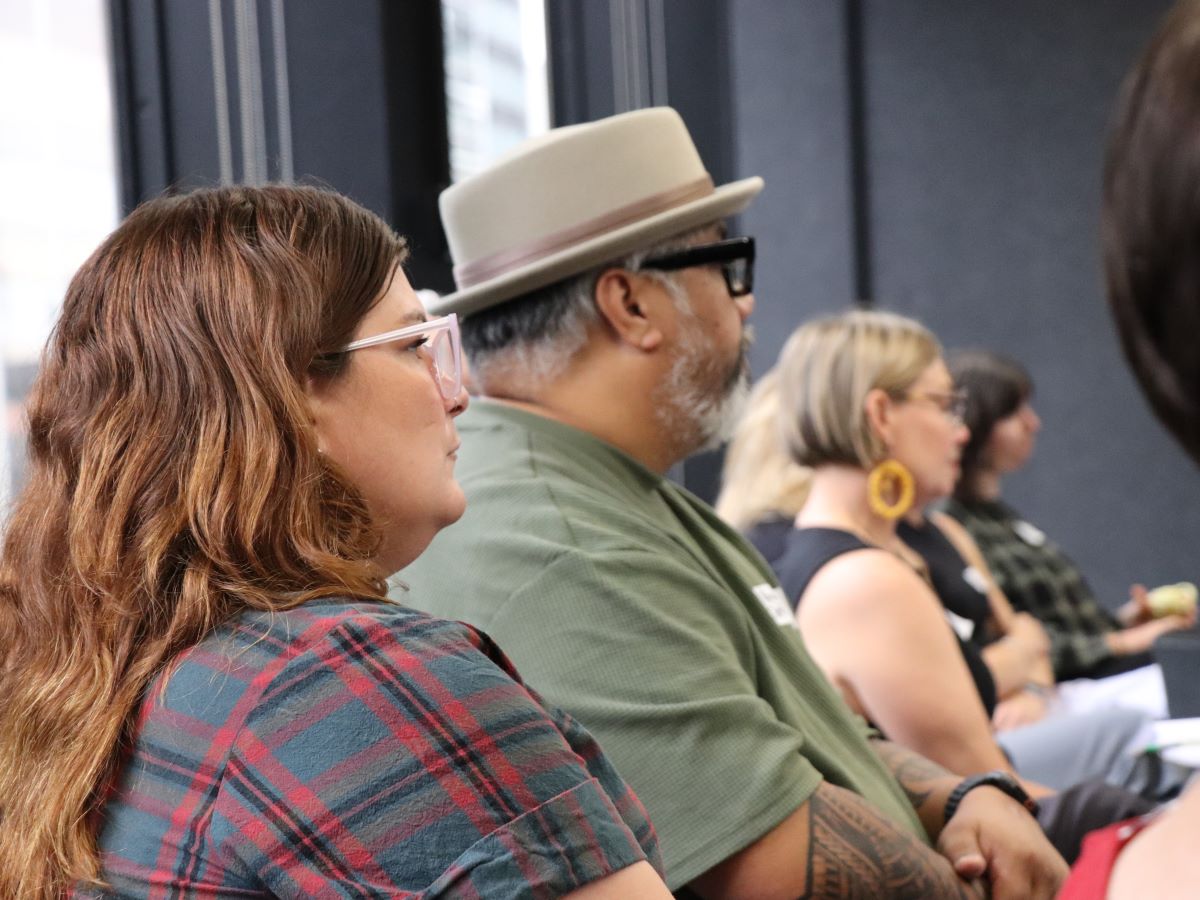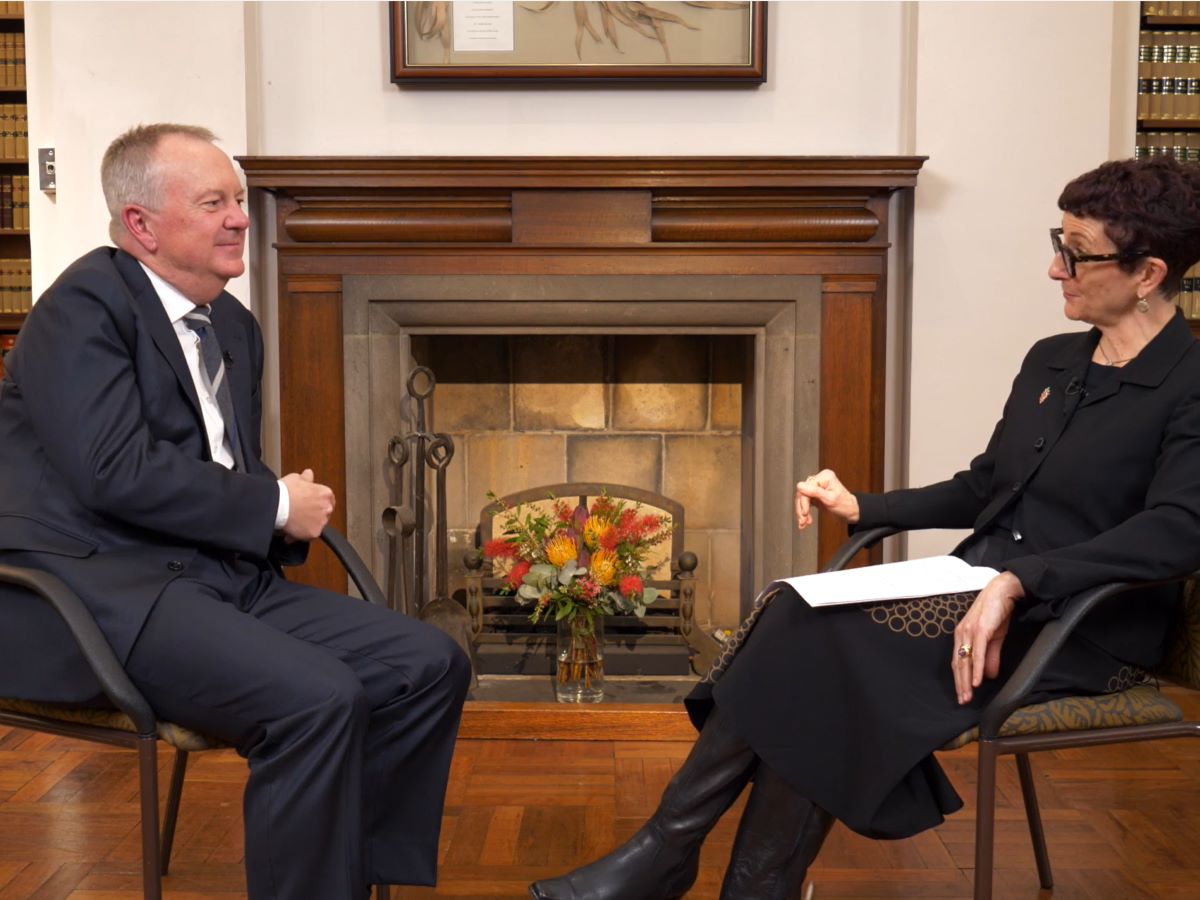Research Network: people-centred research a key to unlock access to justice
Research Network welcomed Professor Rebecca Sandefur and Matthew Burnett, in discussion with VLF's Dr Georgina Rychner and Bridget McAloon, to explore the frontier projects in access to justice research on a global and local scale.

Last week we held our first Research Network of 2024. We heard from esteemed researchers Professor Rebecca Sandefur, Director of the School of Social and Family Dynamics at Arizona State University, and Matthew Burnett, Senior Program Officer for the Access to Justice Research Initiative at the American Bar Foundation, as well as VLF’s own Senior Researchers Dr Georgina Rychner and Bridget McAloon.
They discussed how people-centred research could be used to improve access to justice, both on a global and local scale. This is empirical research that investigates people’s experience of justice, and considers people-orientated solutions as being those that are designed to be accessible, proportionate, and focused on the outcomes people experience when faced with civil legal problems.
Introducing the event, VLF Executive Director Lynne Haultain highlighted how over the last two decades, a new lens has developed on civil legal issues. "We're looking into people-centred justice at two different but very related levels, the global and the local. This is really exciting and contemporary work and we are fortunate to have four highly impressive researchers discuss their perspectives.”
Research Network events aim to highlight exciting developments in access to justice and legal needs, both on a global and local scale. They also serve as a platform for researchers to network and connect with members of the justice community.
Fostering collaboration to support a global research agenda
Professor Rebecca Sandefur, and Matthew Burnett opened the Network with an introduction of the Justice Data Observatory. This new partnership between the American Bar Foundation, Canada’s International Development Research Centre, the World Bank, and OECD brings together researchers, policymakers and practitioners across low, middle and high-income countries to support the production and dissemination of original access to justice research.
The international presenters each shed light on the proposed People-Centered Access To Justice Research Agenda, which provides a global framework for researchers to investigate access to justice. The agenda was formed on the analysis of the last twenty years of evidence-based people-centred justice and their contributions to communities. It has three main strands; knowledge to inspire change in approach, knowledge for understanding how people-centred justice matters, and knowledge for implementation. The agenda provides the groundwork for a better understanding of where and how to invest in coordinated research effort to develop a more robust global research community.
"The goal [of the agenda and Observatory] is to develop synthetic and integrative approaches to shared research questions on access to justice globally, to support the production and sharing of original access to justice research and advocate for evidence-based policy and practice.” - Matthew Burnett
A growing meta-verse of global access to justice research
Professor Sandefur introduced People-Centered Access to Justice: A Global Perspective, the presenters’ recent research report. This report marks the first phase of a global meta-research project on access to justice and its relationship to three core objectives, reducing poverty and inequality, promoting inclusive development and growth, and empowering democratic participation and governments.
Building global access to justice evidence is undoubtedly a challenge. “You need lots of systematically collected data to let you compare experiences and impacts for different kinds of populations to understand what works when, where, and for whom.” Professor Sandefur explained. “And then you need administrative data from lots of different kinds of providers, both inside the justice sector and outside the justice sector to understand how long things take, how much they cost, what the staff investments and IT investments are and so on.”
Professor Sandefur also outlined the second phase currently in progress, which collaborates with a team of international researchers, including PhD students as a strategy to build the next generation of access to justice researchers, to broaden investigation to additional countries. We also learned that case studies of three of these countries, at separate income levels, will form the third phase of the project.
Measure for Measure: research agenda on the home front
Dr Georgina Rychner and Bridget McAloon brought the Network back to the local level with a discussion on VLF’s new project Measure for Measure: Tailoring Everyday Justice, positioning the research within the implementation strand of the global people-centred research agenda set out by Sandefur and Burnett.
“There are key aspects of the research agenda that Professor Sandefur and Matthew Burnett put forward – namely whether a justice initiative, service or policy is effective, whether it can be sustained and scaled – that speak directly to what we are trying to unearth with our new project.” Dr Rychner explained. “Their work presents a global perspective on the importance of access to justice on life outcomes, and what impact a people-centred approach might have.”
“Within that global context, Measure for Measure is an opportunity to show what people-centred justice research can look like in the Victorian context.” – Dr Georgina Rychner
Measure for Measure follows from insights from our Mapping Justice and Public Understanding of Law Survey (PULS) findings. It aims to draw together examples of tailored and targeted initiatives that successfully meet the legal needs and capabilities of people and communities in Victoria.
Dr Georgina Rychner and Bridget McAloon shared with the Network our aim to spotlight initiatives that are working to build understanding of the shared elements that make them successful They also hope to highlight common barriers in sustaining and scaling up promising ideas. The research findings will fill critical gaps in the collective understanding of what works to meet legal need – for whom, for which legal problems, and under what circumstances. This research will provide independent evidence to inform and support the design, funding and implementation of effective, sustainable and scalable access to justice.
From research to implementation and scalability
Following the presentation, the virtual floor network was opened to questions from attendees. There was particular interest in making sure research would be implemented in policy and practice at a government level, addressing the at times tense relationship and misunderstanding between researchers and policymakers. Professor Sandefur addressed the need for positive relations, “We try to bring policymakers and researchers into conversation with each other, so they develop relationships [as part of the Justice Data Observatory]. It’s an important activity to develop trust… and make possible the good translation of research into practice and policy”.
Scalability was also a hot topic for discussion during the Q&A. Bridget McAloon identified funding and evaluation as key issues preventing access to justice initiatives from growing. “Huge amounts of money are often then needed to scale a project up. We’re also not necessarily building in the right types of data collection, the right types of evaluation, to really understand what it is about a service or an initiative that is working, that can then be rolled out.”
Watch the full recording
Want to learn more? Get the complete experience by watching the recording below. You can also subscribe to our Research Newsletter to stay informed about our upcoming projects and events.
If you know of a project suitable for Measure for Measure, participate in our research survey.
Interested in contributing to our Research Network? Please contact our Research team.
Publications
Showcasing access to justice and legal need development
Connecting the justice, community and academic sectors around legal research and evaluation related to access to justice.
Subscribe to our Newsletter
Courts, Community and Confidence
Join Chief Justice Richard Niall a for a recorded conversation about the law’s role in our community and the challenges shaping justice today.


